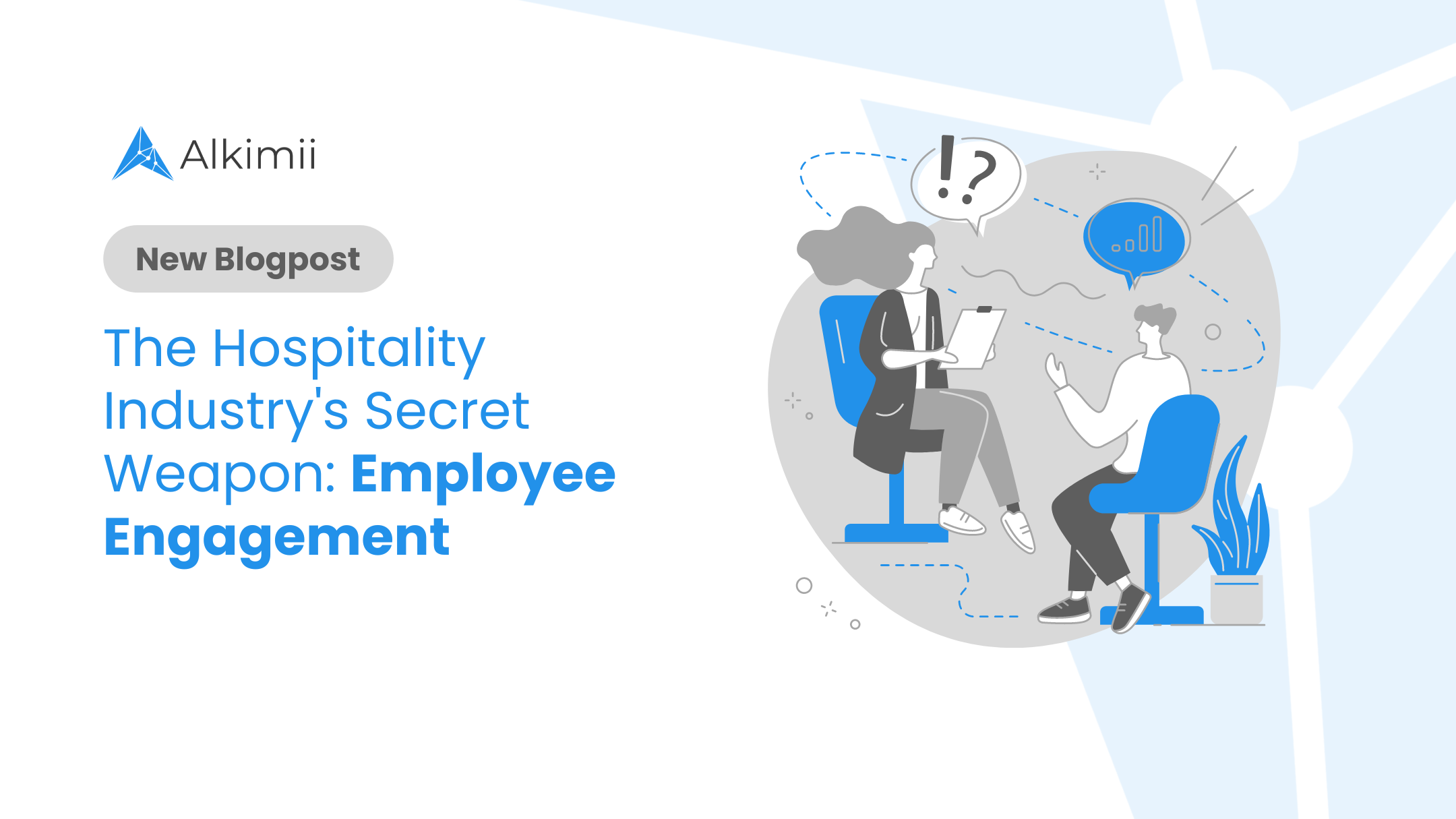Imagine entering a bustling hotel lobby, greeted with a warm smile and a genuine "Welcome". As you settle into your room, you notice a thoughtful touch of lavender-scented amenities, setting the mood for complete relaxation. And throughout your stay, every interaction with team members is infused with empathy and attentiveness. These experiences are not just fate; they are the hallmarks of a hospitality operation prioritising employee engagement.
In today's competitive hospitality landscape, where customer expectations are high and competition is relentless, employee engagement is not just an added bonus; it's a business imperative. Engaged employees are the beating heart of any hospitality experience, the ones who transform ordinary interactions into exceptional memories that guests cherish.
Why Employee Engagement Matters
The business case for employee engagement in hospitality is compelling:
- Productivity: Employees who feel valued and appreciated are more likely to give their all, leading to enhanced efficiency and improved service delivery. In fact, a study from Quantum Workplace notes that when employees believe they will be recognised, they are 2.7x more likely to be highly engaged.
- Profitability: Engaged employees are not only more productive but also more loyal. They are less likely to leave their jobs, reducing turnover costs and fostering a stable workforce. This stability translates into long-term profitability for businesses.
- Retention: Retaining top talent is crucial in the ever-evolving hospitality industry. Engaged employees are more likely to feel passionate about their work and committed to their employer, leading to lower turnover rates and greater investment in the company.
Beyond the Numbers: The Power of Storytelling
While the statistics speak volumes, employee engagement in hospitality is about more than just numbers. It's about creating a sense of belonging and purpose. It's about recognising and valuing employees for their contributions, providing them with opportunities for growth and development, and fostering a sense of community.
Employee Engagement Strategies in Hospitality
There are numerous strategies that hospitality businesses can implement to boost employee engagement. Here are a few examples:
- Celebrate employee achievements and moments: Publicly recognise employees for their contributions, both big and small. Share their work anniversaries, birthdays and promotions.
- Ensure Clear and Consistent Communication: Establish clear and consistent communication channels to keep employees informed about company news, policies, and changes. Use effective channels to ensure that all employees receive the information they need and that they feel part of the company.
- Empower employees to make decisions: Give employees the autonomy to solve problems and make decisions that affect their work.
- Foster a culture of learning and development: Provide employees with opportunities to learn new skills and advance their careers.
- Create a positive and inclusive workplace: Ensure that everyone feels respected and valued, regardless of background or experience.
- Promote work-life balance: Encourage employees to take breaks, use vacation time, and prioritise their personal well-being.
Conclusion
Employee engagement is not just about making employees happy; it's about creating a workforce that is passionate, productive, and committed to the success of the business. In the hospitality industry, where customer satisfaction is paramount, engaged employees are the key to creating memorable experiences that drive customer loyalty and business growth.
By embracing employee engagement strategies, hospitality businesses can attract and retain top talent, improve customer satisfaction, and achieve sustainable growth. The hospitality industry's secret weapon is not a hidden formula or a magical device; it's the power of engaged and dedicated employees.
Sources: Quantum Workplace - 2020 Employee Engagement Trends | Harvard Business Review, 5 Factors That Make for a Great Employee Experience

